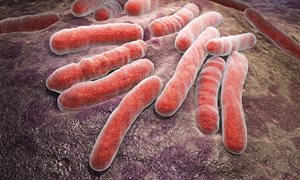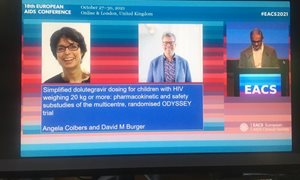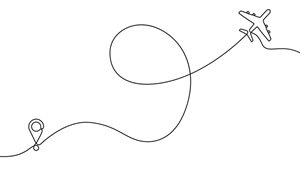1 February 2019
About the Ammodo Science Award
The Ammodo Science Award was introduced to encourage highly talented researchers in a crucial and advanced phase of their scientific career. Through the Award, Ammodo aims to strengthen curiosity-driven science in the Netherlands across the board. Every two years eight Ammodo Science Awards are given to internationally acclaimed scientists in four scientific categories: Biomedical Sciences, Humanities, Natural Sciences and Social Sciences. The laureates have to be connected to a university or institute in the Netherlands, and they should have obtained their PhD at the most fifteen years ago.
The biannual Ammodo Science Award is an initiative of the Ammodo Foundation. The Royal Netherlands Academy of Arts and Sciences is responsible for the nomination and selection procedures.
About Ammodo
Ammodo supports art and science. Together with renowned partners, Ammodo initiates, develops and supports groundbreaking projects within the visual arts, performing arts and fundamental science. By offering excellent artists and scientists room to develop their work and by helping to make it known to the outside world, Ammodo stimulates the development of art and science.
For more information, see www.ammodo.org.
Juliette de Wijkerslooth, director of Ammodo
‘Ammodo recognises the value of blue-skies scientific research: a quest for new knowledge without the limitations of having to search for a specific solution or practical application. This is the third edition of the Ammodo Science Award, and we are proud to enable the laureates Nadine Akkerman, Lenneke Alink, Teun Bousema, Birte Forstmann, Ewout Frankema, Toby Kiers, Jacco van Rheenen and Stephanie Wehner to follow their curiosity.’
Full press release KNAW
 Each of the laureates of this prestigious award for top researchers in the Netherlands receive a monetary prize of 300,000 euro. The funds can be used to explore new directions in pure scientific research. Bousema is one of the eight laureates of 2019.
Each of the laureates of this prestigious award for top researchers in the Netherlands receive a monetary prize of 300,000 euro. The funds can be used to explore new directions in pure scientific research. Bousema is one of the eight laureates of 2019.
About the Ammodo Science Award
The Ammodo Science Award was introduced to encourage highly talented researchers in a crucial and advanced phase of their scientific career. Through the Award, Ammodo aims to strengthen curiosity-driven science in the Netherlands across the board. Every two years eight Ammodo Science Awards are given to internationally acclaimed scientists in four scientific categories: Biomedical Sciences, Humanities, Natural Sciences and Social Sciences. The laureates have to be connected to a university or institute in the Netherlands, and they should have obtained their PhD at the most fifteen years ago.
The biannual Ammodo Science Award is an initiative of the Ammodo Foundation. The Royal Netherlands Academy of Arts and Sciences is responsible for the nomination and selection procedures.
About Ammodo
Ammodo supports art and science. Together with renowned partners, Ammodo initiates, develops and supports groundbreaking projects within the visual arts, performing arts and fundamental science. By offering excellent artists and scientists room to develop their work and by helping to make it known to the outside world, Ammodo stimulates the development of art and science.
For more information, see www.ammodo.org.
Juliette de Wijkerslooth, director of Ammodo
‘Ammodo recognises the value of blue-skies scientific research: a quest for new knowledge without the limitations of having to search for a specific solution or practical application. This is the third edition of the Ammodo Science Award, and we are proud to enable the laureates Nadine Akkerman, Lenneke Alink, Teun Bousema, Birte Forstmann, Ewout Frankema, Toby Kiers, Jacco van Rheenen and Stephanie Wehner to follow their curiosity.’
Full press release KNAW
Related news items
.aspx?width=800&height=533&ext=.jpg&type=BlockColumn1Zoom1)
New test for Lyme disease is not reliable
15 June 2022 To determine whether someone has Lyme disease, doctors in the Netherlands often use antibody tests. For some time now, so-called cellular tests have been available on the market. However, the VICTORY study published in The Lancet Infectious Diseases has found that these tests are not reliable. go to page
With concerted effort, tuberculosis could be eradicated in 30 years time March 24th was World Tuberculosis Day
24 March 2022 Since 2020, the number of deaths from tuberculosis increased for the first time in a decade, caused by the COVID pandemic: fewer people had access to the right care on time. Some catching up is needed. go to page
NIH grant for follow-up research on tuberculous meningitis
10 February 2022Met subsidie van het Amerikaanse NIH gaat With a grant from the U.S. NIH, Reinout van Crevel will continue to unravel the disease process of tuberculous meningitis.
go to page
The European Hector Research Award in HIV 2021 awarded to Angela Colbers and David Burger
2 November 2021 On Friday 29 October 2021, during the 18th European AIDS Conference in London, the Hector Research Award for the best scientific article related to clinical or epidemiological HIV research was presented to Angela Colbers and David Burger, both working in the Pharmacy of the RadboudUMC. go to page

